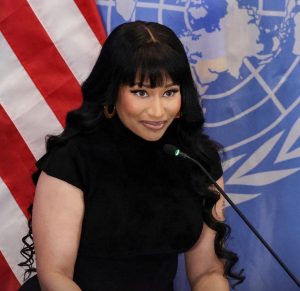Malaria as of today remains a big health challenge in Nigeria with the country ranking among the eleven countries that carry approximately 70% of the global burden of malaria.
Malaria is transmitted through the bite of the female anopheles’ mosquito that is infected with plasmodium parasite which transmits the malaria from the mosquito to the human. As of March 2023, over 1.3 million children had received at least one dose malaria vaccine through the RTS 5 vaccine programme. Interestingly, 29 countries in Africa have expressed interest in adopting the malaria vaccine as part of their national malaria control strategies.
This year millions of people are uniting to mark World Malaria Day with the theme “Accelerating the fight against malaria for a more equitable world”. This theme is a big reminder for those managing Nigeria’s health sector that malaria remains a battle on the front burner to be won. It also calls for an urgent approach to address the various inequalities that prevents easy access to malaria prevention, detection and treatment services.
In Nigeria, many Non-governmental organisations are doing a lot to share insecticide-treated malaria nets, but with varying degree of environmental conditions that prompts the ailment to be on the watch list for both young and the old. Of this population is the pregnant women and young children under the ages of five.
The number of deaths recorded from malaria continues to be a scary statistic which requires urgent action from the government and the need for more individuals to donate to the effort to reduce the epidemic. There is need to ensure continuous and equitable delivery of malaria services to all who need them despite funding constraints.

Despite the dangers, global efforts to reduce malaria have stagnated, thereby posing a significant threat to public health and exacerbating inequalities within communities. Everyone has the right to quality, timely, and affordable malaria services, yet this remains elusive for many, perpetuating a cycle of inequity that disproportionately affects the most vulnerable among us.
It could be also noted that refugees, migrants, internally displaced people, and indigenous people are also at heightened risk of malaria, these groups of people are often excluded from disease control efforts and usually experience adverse conditions where malaria thrives.
Malaria remains a public health challenge that needs emergency approach in order to reduce the number of deaths as well attend to those in need of urgent treatment. Although, a lot of progress has been made to reduce the malaria scourge despite the great obstacles faced, more progress can still be achieved.
As we celebrate 2024 World Malaria, it is my admonition that government, philanthropists, NGOs and stakeholders should continue to advocate, fund research and development of policies that help reduce the rate at which people contract the ailment. Malaria is a treatable disease and we can live a better life from transmission to treatment. As we stand united with other champions across the globe on World Malaria Day, together we raise awareness to combat this preventable disease.
Written by Tosin Adesile


























